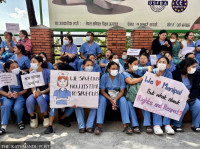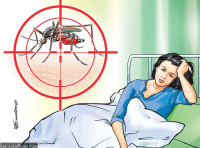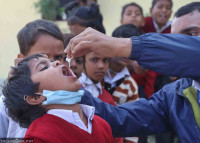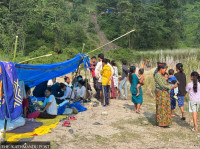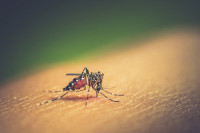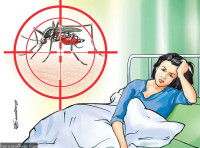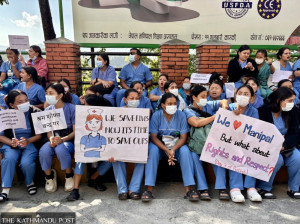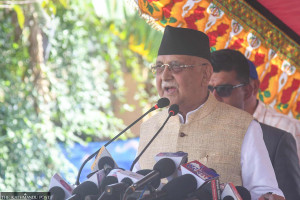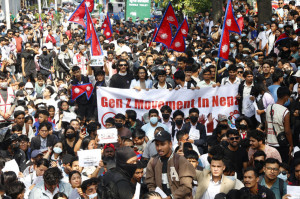Health
Influenza cases are rising and Covid threat is not over yet, say doctors
Experts call for tireless precaution as fully vaccinated people are catching virus too.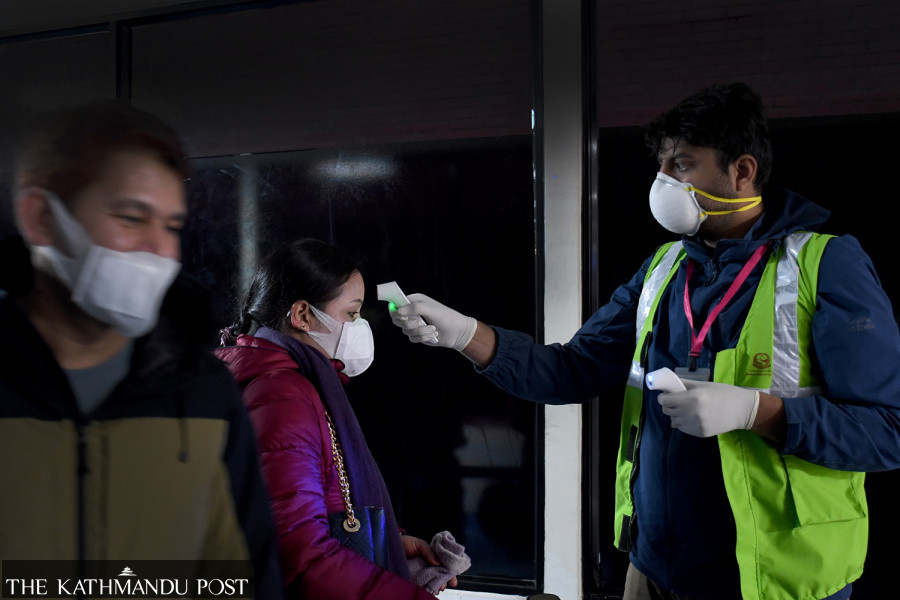
Arjun Poudel
With the onset of winter, influenza cases have started to soar at hospitals.
These days, 40 to 50 people infected with influenza virus have been visiting the outpatient department of the Tribhuvan University Teaching Hospital for treatment daily.
And what is concerning is that the coronavirus is still circulating in communities but people have almost stopped following safety measures—wearing of face masks, handwashing and maintaining social distance.
Although the number of Covid-19 cases has declined of late, people are still getting infected with the coronavirus.
“Fully vaccinated people are also catching infection and getting serious,” Dr Niraj Bam, an assistant professor at the Tribhuvan University Institute of Medicine, told the Post. “As Tihar is just over and people are celebrating Chhath, the number of influenza cases will rise in the coming days.”
Of the total coronavirus cases at the hospital, up to 20 percent of patients are fully vaccinated, doctors say.
Studies suggest that viruses—adenovirus, rhinovirus, influenza virus and even the coronavirus—spread faster during winter, doctors say.
A drop in temperatures means low humidity, which is considered the virus’ best friend. And when the weather gets cold, the air becomes drier. People staying indoors also tend to use heating systems to keep themselves warm. This makes the air as well as the tissues lining the respiratory tract dry, which may render mucus ineffective to remove foreign invaders like viruses, including SARS-Cov-2.
“People infected with influenza virus have been suffering from bronchial asthma, upper respiratory tract infection, chronic obstructive pulmonary disease and others,'' Dr Ashesh Dhungana, a pulmonologist, who is also a critical care physician at Bir Hospital, told the Post. “Chances of misdiagnosis will be high, as most of the symptoms of Covid-19 and influenza virus infections are similar.”
Doctors say safety measures, including wearing face masks, are needed not only to avoid the coronavirus but also other viruses and diseases.
''Importance of face masks never lessens. We should not forget that the coronavirus infection rate has lessened but it is still circulating in communities,” said Dhungana.
The coronavirus infection rate in Nepal has declined of late.
The number of new Covid patients has declined to single digit for the last several days at the Sukraraj Tropical and Infectious Disease Hospital in Kathmandu. Only two to four serious Covid patients referred from districts have been coming to the hospital for treatment per day, hospital officials said.
Patan Hospital, which had allocated over 300 beds for Covid-19 patients during the second wave of the pandemic, said that it has reduced the number of beds for Covid-19 patients to less than 100.
Doctors, however, warn that the risk of the infection has not declined. They said that several countries in Europe and Asia, despite having high vaccine coverage rates, have been witnessing a rapid surge in new cases. Some countries have even been enforcing restrictions in movement to contain the spread of the coronavirus.
So far, 7,482,195 people (24.6 percent of the total population) in Nepal have been fully vaccinated against Covid-19.
Experts in Nepal say people have also developed natural immunity due to infection and vaccination and this has led to a decline in new infections and hospitalisations of late.
“We don’t know how long the immunity developed from infection and vaccination lasts,” said Adhikari. “It has been said that both types of immunity—whether developed through natural infection or vaccination—wane after six months. If so, the number of new cases will start to increase after a few months.”
Experts say that the authorities concerned, as well as the general public should be cautious about the risk of infection and reinfection and continue to follow safety measures.
“As the chain of infections at community level has not broken, the risk of catching the virus always exists,” said Adhikari, an infectious disease and critical care expert. “We should not forget that fully vaccinated people have also tested positive and those who were already infected have been reinfected.”
The Ministry of Health and Population had launched a mask campaign in August but after the launch of the campaign, neither the authorities concerned nor the general public have been adhering to it.
Officials at the Ministry of Health and Population admit that people have almost forgotten the importance of wearing face masks.
“We have never said that the risk of Covid-19 infection has lessened,” Dr Samir Kumar Adhikari, joint spokesperson for the Health Ministry, told the Post. “As the winter sets in, the risk of other infections including seasonal influenza increases.”
Doctors say wearing face masks and adhering to other safety measures is not only important during the pandemic but also at other times, as they protect individuals from diseases.
“We had launched the mask campaign after the movement restrictions were lifted,” said Adhikari. “We have never said that people should not wear face masks.”
Experts say face masks should be made mandatory and the surveillance system should be made more effective.
Authorities should be more vigilant towards possible outbreaks of diseases, said Dr Bam of the Institute of Medicine.




 18.12°C Kathmandu
18.12°C Kathmandu
